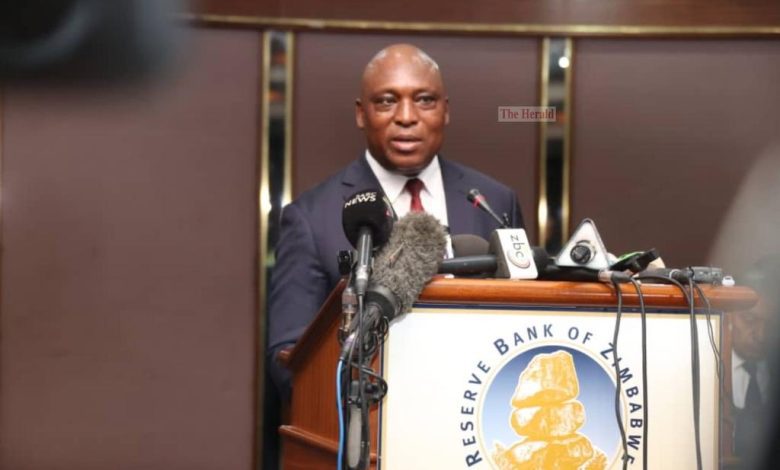Capital markets: Zim striking right chords
Capital markets are a general category of markets that facilitate the buying and selling of securities with medium-term and long-term maturity, of one year or more.
They help channel savings and investment between suppliers of capital (investors) and users of capital through intermediaries.
To put it differently, capital markets play an important role in economic development as they facilitate growth in the real sector by giving producers of goods and services, and entities tasked with infrastructure development, access to long-term financing.
However, an underdeveloped capital market significantly limits price discovery and hamper investors’ ability to diversify risk.
Consequently, economic players such as pension funds, insurance companies as well as individual investors struggle to allocate capital efficiently and end up channelling funds to investments that give little to negative returns.
An underdeveloped capital market means domestic firms pay a premium for capital (commercials loans), reducing investment, growth, and job creation, while foreign investors are deterred by higher costs (transaction costs) and greater risk (illiquid markets).
Deep and efficient domestic capital markets can address these issues while simultaneously helping to mitigate the impact of capital-flow volatility.
Developed capital markets allow local institutional investors such as pension funds and insurance companies to access long-term investment sources other than Government debt and bank deposits.
However, despite the manifold benefits of robust capital markets, Zimbabwe has struggled to develop its capital markets over the years. The issuer community has not created a sufficient pool of attractive products for investors. As a result, investors willing to participate often discover that offered securities are insufficient in volume and breadth to meet their investment needs. In addition, apart from Government debt instruments, the stock market is probably the only other market. It too has limited options. Only ordinary shares are available for investment.
However, all hope is not lost as the country, has now made major strides in broadening its capital markets.
In Finance and Economic Development Minister Professor Mthuli Ncube’s words, capital markets regulators and players have found an appreciative ally.
In spite of his controversial decision to halt trading on the ZSE for more than a month, Professor Ncube has been at the forefront of highlighting the vast opportunities and possibilities that can be found in the capital markets.
The minister has been quick to put in place incentives that encourage new capital market products.
For the Victoria Falls Stock Exchange, Professor Ncube reduced transaction costs to approximately half of those charged on the ZSE. Investors on the VFEX will also be exempt from capital gains withholding tax.
In recognition of the capabilities of REITs to mobilise resources for new infrastructure projects and also incentivise investors into this alternative high yielding financial instrument, the minister proposed to exempt income accruing to REITs from corporate income tax subject to meeting set conditions including distributing a minimum of 80 percent of its taxable income in the form of shareholder dividends each year.
This week, Professor Ncube officiated at the launch of the country’s first-ever exchange-traded fund (ETF), a creation of Old Mutual Zimbabwe. The ETF will be listed on the Zimbabwe Stock Exchange on the 4th of January 2021.
Professor Ncube said the launch of Old Mutual Zimbabwe’s ETF was in line with the National Development Strategy (NDS1) whose objective is partly to deepen the opportunities for investment and savings pool in the country.
He said investment lies at the heart of any economy.
According to the World Bank, an estimated US$4 trillion in annual investment is required for developing countries to achieve the Sustainable Development Goals (SDGs) by 2030.
In light of this investment requirement, there is a greater need to develop and strengthen capital markets in order to mobilize capital.
Zimbabwe is in the right direction, but more still needs to be done. Establishing capital markets is however a long, drawn-out process that requires step-by-step establishment of financial instruments, regulatory and legal frameworks, market infrastructure, and the establishment of a critical mass of market participants.
Yet despite the challenges that can make the development of deep capital markets so complicated, Zimbabwe can no longer have the option to postpone or neglect its capital markets development.
Some of the key issues that need serious consideration include strengthening the investor base and improving regulation and consistency of treatment of institutional, foreign, and other investors.
There is a need to bring trading, settlement, custody, and delivery mechanisms up to world standards, where necessary through regional linkages, and opening up to foreign investment in these services.
Investor education is also a key enabler. Insufficient financial education can significantly hamper development of a country’s capital markets. Without this basis, investors are more likely to suffer unanticipated losses and lose confidence in capital markets.-ebusinessweekly.co.zw











